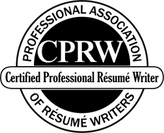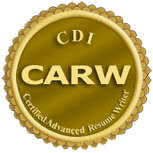 In this digital age of rapid advancements and evolving job markets, the traditional resume has undergone significant changes. Gone are the days when a one-page document listing your educational background and work experience sufficed. As employers seek to understand candidates on a deeper level, it's essential to adapt our resumes accordingly. In this blog post, we'll explore the things that are no longer necessary to include on a resume in the modern job search landscape. Objective Statement For years, job seekers were advised to include an objective statement at the top of their resume, outlining their career goals. However, this practice has become outdated. Hiring managers now expect applicants to tailor their resumes to specific job postings, highlighting relevant skills and experiences. Instead of a generic objective statement, consider writing a compelling summary or professional profile that showcases your key qualifications and achievements. References In the past, it was customary to include a list of references at the end of a resume. However, in today's digital age, it is assumed that you will provide references upon request. Including references on your resume can take up valuable space that would be better used to highlight your accomplishments and skills. Instead, use that space to showcase your expertise and relevant achievements. Irrelevant Work Experience In the past, job seekers were encouraged to include every job they've ever had, regardless of its relevance to the position they were applying for. However, now it's more important to focus on relevant work experience that demonstrates your skills and accomplishments. Tailor your resume to highlight experiences that directly relate to the job you're seeking, allowing potential employers to see your suitability for the role at a glance. High School Information Unless you're a recent high school graduate or have limited work experience, it's no longer necessary to include information about your high school education. Hiring managers are primarily interested in your college or university degree, along with any relevant certifications or professional development courses. Focus on showcasing your higher education achievements and relevant coursework instead. Outdated Skills Technology and industry landscapes evolve rapidly, rendering some skills obsolete. Including outdated skills on your resume can make you appear out of touch with current trends. Instead, emphasize your proficiency in relevant and in-demand skills. Highlight any certifications or specialized training you've received to showcase your commitment to staying up-to-date in your field. Personal Information In the past, it was common to include personal information such as marital status, age, and hobbies on a resume. However, this information is now considered unnecessary and could potentially lead to bias in the hiring process. Focus on presenting your professional qualifications, skills, and experiences that directly relate to the job requirements. As the job market continues to evolve, so too should our resumes. By letting go of outdated resume practices, we can create more effective and targeted documents that capture the attention of hiring managers. Emphasize relevant experience, skills, and achievements, and ensure your resume aligns with the specific job requirements. By adapting our resumes to the modern job search landscape, we increase our chances of securing the opportunities we desire.
0 Comments
|
Categories
All
Archives
December 2023
|
HOURSM-F: 9am - 5pm
|
|



